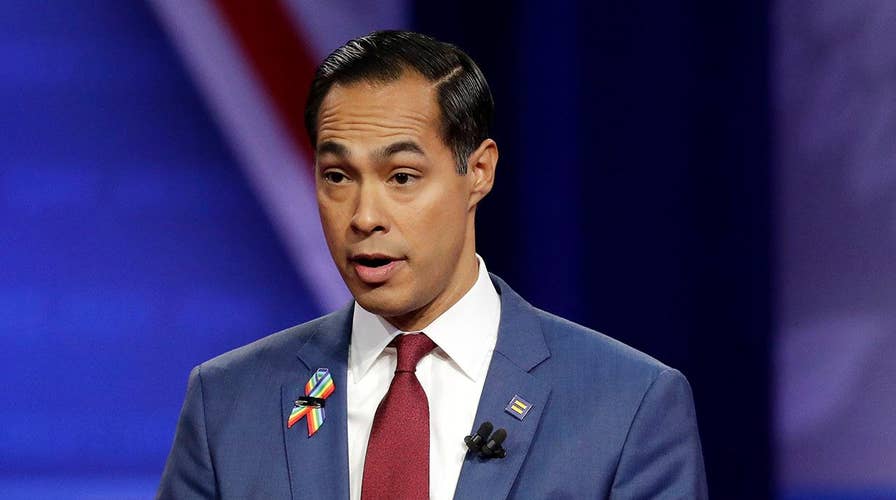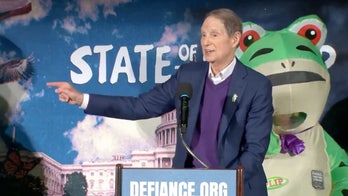Julian Castro pushes back on Beto O'Rourke's mandatory gun buyback plan
Talk radio host Dana Loesch argues 2020 White House hopeful Julian Castro is a 'hypocrite' on the subject after his remarks on gun control at the Democrat primary debate.
PORTSMOUTH, N.H. -- Democratic presidential candidate Julian Castro is calling for Iowa and New Hampshire to lose their coveted status leading off the presidential nominating calendar, pointing to a lack of diversity in both states.
While his comments risk angering officials -- and voters -- in both states, they come as he's already pulled back from New Hampshire amid fundraising and other hurdles for his campaign. In pointed remarks Sunday evening, he said it's time to "change the order of the states."
He continued: "I don't believe we're the same country we were in 1972. That's when Iowa first held its caucus first, and by the time we have the next presidential election in 2024, it'll have been more than 50 years since 1972. Our country's changed a lot in those 50 years.”
The former San Antonio, Texas mayor--who later served as Housing secretary in then-President Barack Obama’s cabinet-- is the only Latino among the major Democratic White House hopefuls. He made his comments during an interview with MSNBC while campaigning in Iowa.
CASTRO LAYS OFF STAFF IN NEW HAMPSHIRE AND SOUTH CAROLINA
Castro complimented both states, saying “what I really appreciate about Iowans and the folks in New Hampshire is that they take this process very seriously. They vet the candidates, they show up at town halls, they give people a good hearing.”
But he argued that demographically they are “not reflective of the United States as a whole, certainly not reflective of the Democratic Party, and I believe that other states should have their chance … I don't believe that forever we should be married to Iowa and New Hampshire going first, and that's the truth of the way I see it."
Castro’s comments came a week after he let go of his small staffs in New Hampshire as well as South Carolina, which holds the first southern primary and is the fourth and final of the early presidential nominating states to vote.
Castro, long an underdog for the nomination compared with many better-known and better-funded rivals, faces fundraising hurdles and has yet to qualify for the next primary debate, which will be held on Nov. 20.
THE LATEST FROM FOX NEWS ON THE 2020 PRESIDENTIAL CAMPAIGN
New Hampshire Democratic Party Chairman Ray Buckley, reacting to Castro’s latest comments, said: “I can imagine he is frustrated but blaming his campaign’s challenges on the voters of Iowa and New Hampshire is a bit much.”
Castro’s complaint is one that other Democrats have made for years – as they’ve pointed to the lack of demographic diversity in the first caucus state and first primary state. Iowa is 91 percent Caucasian, and New Hampshire is 93 percent Caucasian.
The nation’s increasing ethnic diversity, urbanization, and geographic redistribution contributed to adding Nevada – with a large minority population and urban areas – as the third contest in the nominating calendar starting in the 2008 presidential election cycle.
In South Carolina, which follows Nevada, black voters make up the majority of the Democratic presidential primary electorate.
South Bend, Ind., Mayor Pete Buttigieg disagrees with Castro when it comes to re-ordering the calendar, however.
Campaigning in New Hampshire on Monday, Buttigieg told Fox News: “I think the role of all four early primary states really creates that balance and makes sure candidates have to visit different kinds of states and speak to diverse constituencies.”












































